Living and Learning in Málaga, Year 2—Distractions and Illumination
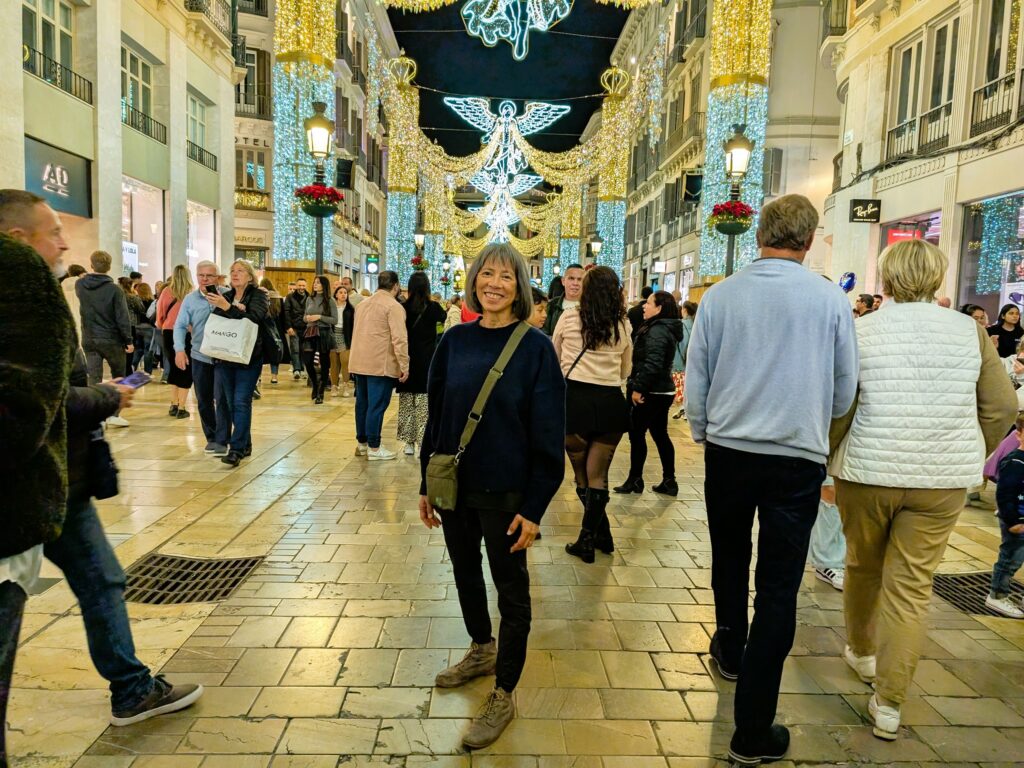
First, the joy. The end of November is marked by the illumination of the luces de Navidad that span Calle Larios and other streets throughout the city. A light show with music happens three times a night until January 5.
But the first part of November was anything but joy for me and nearly half of the United States. And yet, there was art and culture to distract me.
Solace in Madrid
After spending three weeks in the States, I arrived in Madrid on November 5, the day of the U.S. elections. With Madrid six hours ahead of New York and nine hours ahead of San Francisco—my two points of reference due to having a daughter and grandchild in each city—I knew I wouldn’t learn of any results until the next morning.
I had a long wait ahead of me. My plane had touched down in Madrid at 7 a.m.; the hostel I had booked would not open until 10; and the room likely would not be available until that afternoon. I hung out at an airport cafe, hydrating after an overnight, seven-hour, dry-mouth-inducing, sleepless transatlantic crossing where you try to distract yourself from the fact that you’re in a metal tube cruising rapidly, but not rapidly enough, miles over a very deep ocean.
When I got to the hostel a little after 10, surprisingly, the room was ready, and I went straight to bed during which time I didn’t have to think about the election. Later I showered, went to the nearest restaurant, and ordered from the menú del día. I made a long siege of the three courses. The rest of the day was spent in walks around the city with timeouts in cafes and plazas to read.
That night, I woke up multiple times to check for nonexistent news. In the morning, affected by a sudden dread, I didn’t want to check the news. It turns out I didn’t have to. James, who was on a train from Málaga to join me in Madrid messaged me with the news. Disbelief and despair. A convicted criminal, a rapist, a racist, a man who had no platform except for a “concept of a plan,” threats, name-calling, and outright lies was elected president. Alone in the hostel room, where the sun streamed through the window replacing the all-night music from a dance club, I did an agitated turn around the room as if trying to undo the news before slumping into a chair to cry.
When James arrived later that morning, I ranted over brunch, ranted really over the next two days. We distracted ourselves with walks, literary exhibits, and bookstores. One of our walks took us to the views from the Mirador de la Montaña. We stopped and clumsily tried to take a selfie until a passerby rescued us from our ineptness and graciously took our picture.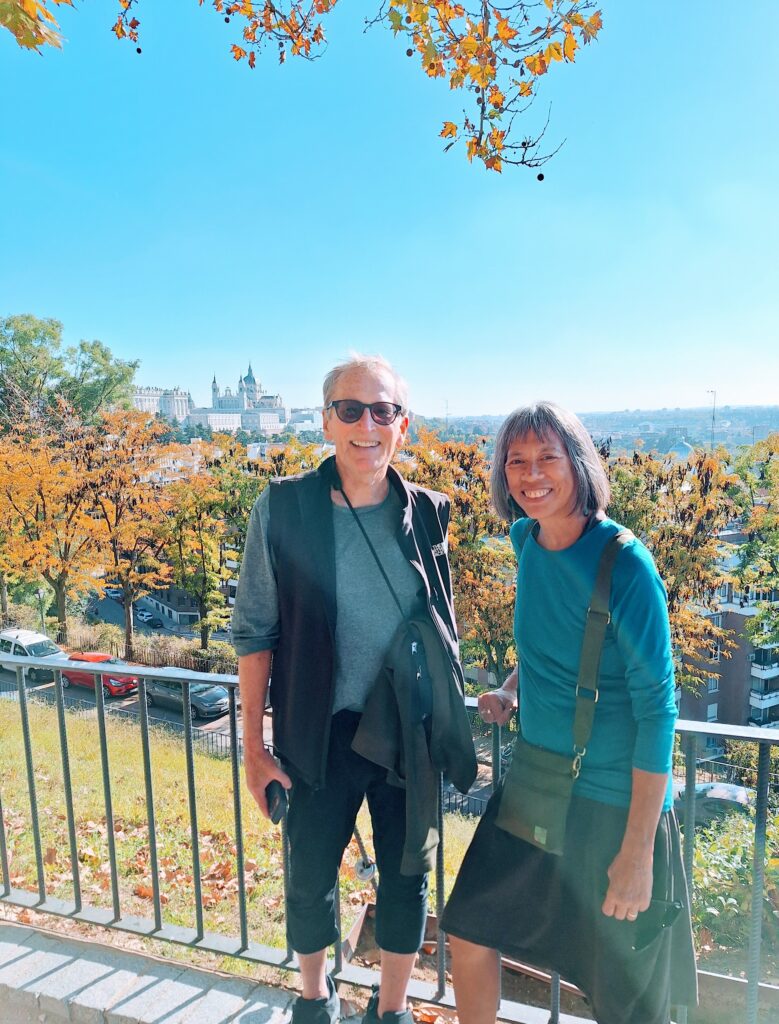
We went to the Centro Sefarad-Israel to see the exhibit titled “Cien modos de recorder a Kafka,” one of many exhibits around the world marking the one-hundredth anniversary of Kafka’s death. The exhibit consisted of personal letters, drawings, excerpts from his books, and family photographs. All three of Kafka’s sisters died in the Holocaust, a fate that might’ve been Kafka’s had he not succumbed to tuberculosis in 1924 at the age of forty. Here’s a little story from the exhibit.
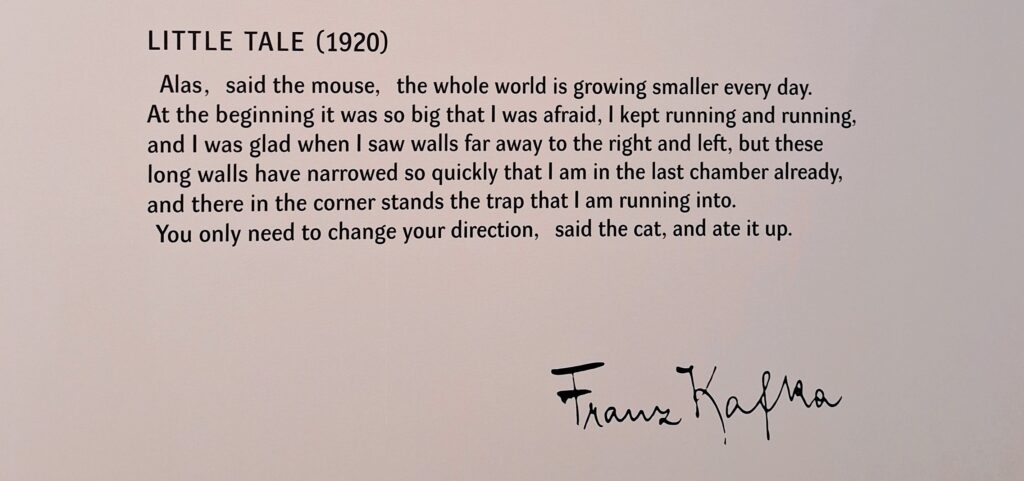
At the Instituto Cervantes, we saw the exhibit on Ana María Matute, the prolific and multiple-award-winning Spanish writer and illustrator. She published her first story when she was seventeen years old. As a postwar writer, she was censored under Franco. During her long career, she lived, lectured, and taught at various places in the United States. Later that day, I browsed several bookstores and bought Demonios famiiares, Matute’s last book, which takes place during the Spanish Civil War. It was published in 2014, the year she died. Matute’s philosophy about life and art is the title of the exhibition: Who doesn’t create, doesn’t live.
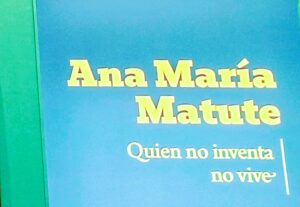
Matute’s wasn’t the only book I bought in Madrid. La Libreria on Calle Mayor specializes in books about Madrid. I bought Guia del Barrion de la Letras de Madrid/A Guide to Madrid’s Literary District, yes, a bilingual book about one of my favorite areas of Madrid. Also, on one of my evening walks, I stopped in at another bookstore and bought a small (literally— the size of a large postcard) book of essays that looked highly readable in the original Spanish. Okay, not a walk in the park, but not a slog either.
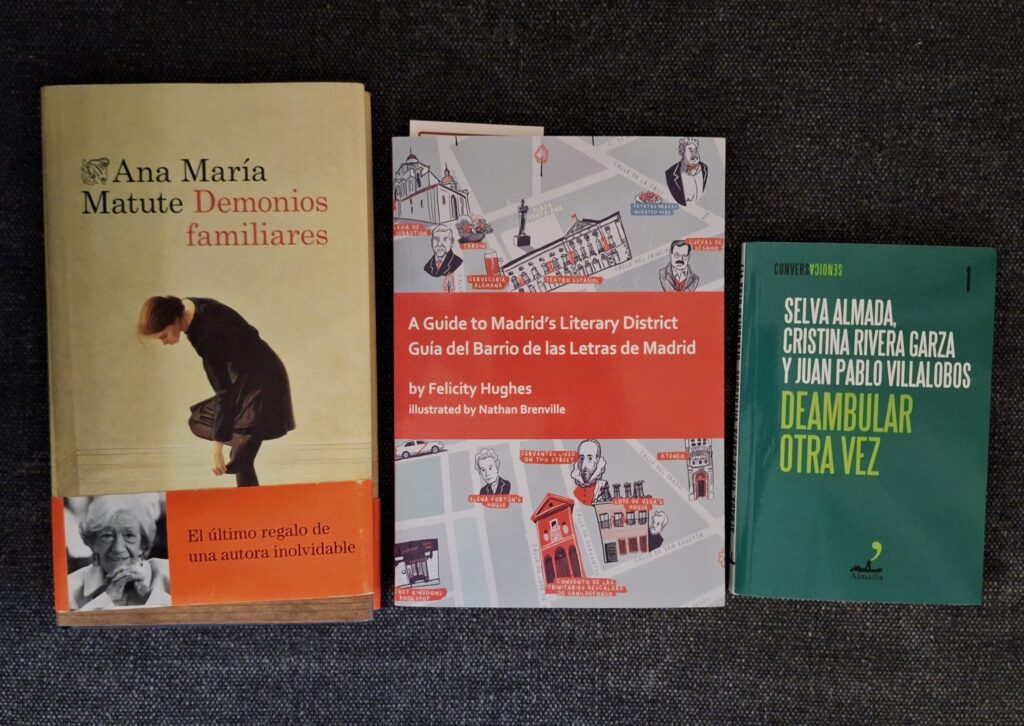
Spanish Acquisition Report
After my three weeks in the States where I spoke not a word of Spanish, I panicked at my lapse in practice and a week after my return decided to add three classes to my usual two a week. There are days when I feel like it’s smooth sailing in the Spanish acquisition waters like the night I went for tapas with two Spanish-speaking friends. Another night I decided to attend a session of the Festival de Novela Negra. That was a total bust. It could’ve been Russian I was listening to for the little I understood, for which I blame the fuzzying effect of microphones. When I’m in an elevator or sitting in a café I try to eavesdrop on conversations around me to see how much I understand. My comprehension depends very much on the person speaking.
What I understand best are podcasts because the whole intent is clarity not just of speech but ideas. My favorites at the moment are No Es El Fin Del Mundo which discusses world events and is sponsored by an independent media organization called El Orden Mundial. I’ve listened to several episodes concerning Trump and the US elections. I like how in the graphic below the title of the episode is “No es el fin del mundo,” which is both the name of the podcast and a bit of reassurance: It’s not the end of the world.

Another program I listen to is Un Tema Al Dia, which is the podcast of El Diario, one of the left-leaning newspapers in Spain. One of the recent episodes was on the exodus from Elon Musk’s X. I listen to these podcasts while working out at the gym. Sometimes, I’ll repeat aloud a word or phrase that I want to remember to add to my vocabulary, surely marking me as the extranjera that I am.
Reuniting with a Friend
Twelve years ago, I appeared on TV journalist Jannelle So’s program Kababayan L.A. It’s where I met Cecilia Gaerlan. We appeared together on the show to talk about our then recently published books—my first novel When the de la Cruz Family Danced, and her memoir In Her Mother’s Image. That was fun, but even more fun was riding with Cecilia in her friend’s sporty red convertible with the top down under the L.A. sun. Though I’d grown up in Southern California, that was my quintessential California moment.
All these years later, Cecilia and I were in the same city again. She and her husband Jeff, California Bay Area residents who spend part of their time in Valencia, Spain, were in Málaga to watch the Davis Cup. James and I enjoyed having tapas with them when they first arrived and then brunch on their next to last day here. If you want to know what Ceclia’s been up to for the past twelve years, take a look at her website which addresses a period in Filipino and U.S. history that she discovered was known to too few people. When discussing her memoir, which includes the story of her father’s survival of the Bataan Death March and imprisonment during World War II, she often found herself having to explain this very significant aspect of history. So, she founded the Bataan Legacy Historical Society. It’s seriously good and important work by a determined and dedicated educator, activist, and writer. I’m proud to know her.
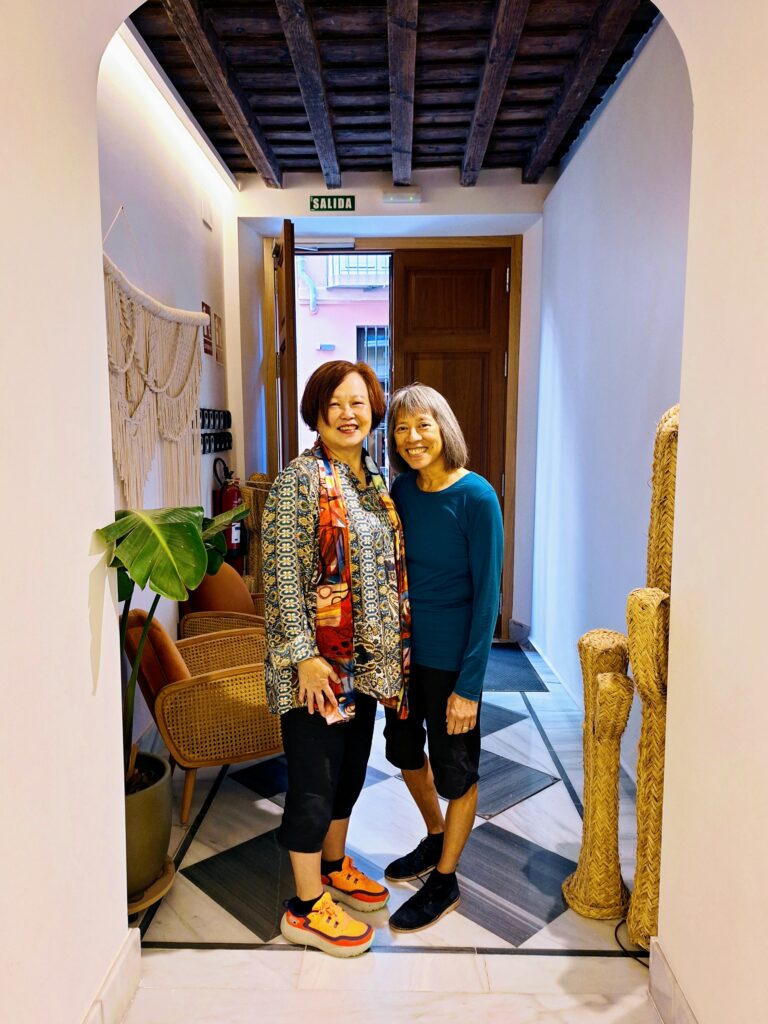
To summarize this month, I leave you with these quotes…
There in the corner stands the trap that I am running into. (Franz Kafka)
It’s not the end of the world. (El Orden Mundial)
Quien no inventa, no vive. (Ana Maria Matute)
Efectivamente, no es el fin del mundo…carajo! Y espero que no sea el fin del planeta (ya que el mundo debe ser mas grande…:)
Disfruta de la Madrid!! Ya aprendiste sus palabrones?
Pero no puede ser el fin de la democracia? Siempre disfruto de mis excusiones a Madrid. Me encanta esa gran ciudad. Y me puedes enseñar algunas palabrones?
Ron and I are back in the states, but wondering if we should have stayed abroad. I’m hoping the damage from the rains wasn’t too severe. Our friend in Valencia is posting some pretty devastating pictures of damage there.
Yes, things are uncertain in the States, but with Russia intent on Ukraine and the resultant potential threat to Europe, things could get messy here too. I think the damage from the rains in Malaga was not too serious, thankfully nothing like what happened in Valencia.
Lovely to hear you write.
Lovely to receive your comment!